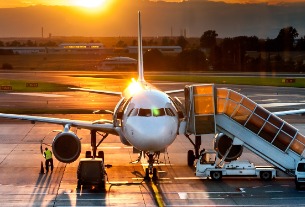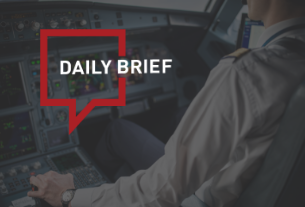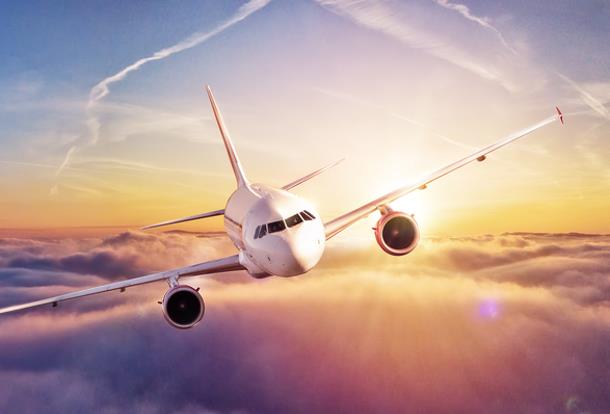Oliver Dlouhy founded the online travel agency Kiwi.com to introduce the masses to his favorite flight hacking methods. But with a new innovation — Kiwi helps customers buy what the industry called “throwaway” tickets — Dlouhy is irritating some of the world’s largest airlines, who warn the practice violates their rules.
This is among the most simple forms of travel hacking. On long-haul routes, airlines may charge significantly more for a one-way ticket than a round-trip. When they must fly one way, enterprising travelers buy both directions and “throw away” the return, potentially saving thousands of dollars.
Airlines know people do it, and they track and punish repeat offenders, but it’s rare for an online travel agency to promote the practice.
Kiwi makes it easy. When a customer searches for a one-way ticket, the search engine may show throwaway options as top results, choosing a dummy return based on which is cheapest. Later in the booking path, it has been explaining its approach by telling customers, “fly one way or use the return, it’s up to you. Either way you’ll be saving money.”
“It’s a good thing for the customers, and for us the customers are always first, even if some airlines might not like it,” Dlouhy, Kiwi’s CEO, said in an interview. “We are paid by our customers, not by the carriers.”
This makes Kiwi, a Brno, Czech Republic-based company that sells about 25,000 total seats per day, a potential threat to several major airlines. Four of them — American Airlines, United Airlines, Virgin Atlantic, and Lufthansa — told Skift throwaway ticketing violates their contract of carriage, the long legal documents passengers agree to when they buy a fare.
“Lufthansa’s Conditions of Carriage stipulate that the fare only applies if all flights are flown in the booked order,” a Lufthansa spokeswoman said in an email.
Throwaway ticketing probably is not as threatening to carriers as a practice called “hidden-city” ticketing, when passengers buy a one-stop ticket to a city they do not intend to visit, and instead get off in an airline’s hub. Enterprising consumers save a fortune, as a one-stop from New York to Oslo is almost always cheaper than a nonstop to Frankfurt.
Another site, Skiplagged, helps customers find those fares. United Airlines unsuccessfully sued it four years ago, and since then, it and some competitors have threatened travelers who use the platform. Throwaway ticketing likely doesn’t cost airlines as much in lost revenue — how many travelers need one-way long-haul tickets? — but Dlouhy said he still hears from angry airline lawyers.
“So far they [have] never acted on their threats,” he said. “That’s another evidence that whatever we do is 100 percent legal. There are no grounds for them suing us for anything.”
That’s only part of the story, though.
Kiwi can probably sell whatever tickets it wants, and of the four major global airlines who responded to a request for comment, only American indicated it might contact Kiwi about selling throwaway tickets. “Our legal team is taking a look at the website and reviewing all of our options,” an airline spokeswoman said.
But carriers can take punitive action against customers, particularly ones who repeatedly buy throwaway tickets.
Sometimes, an airline sues customers directly, arguing they knowingly committed fraud. Recently, Lufthansa took legal action against a customer who bought a hidden-city ticket, a case that received considerable media attention. Lufthansa lost in court, but news reports earlier this year indicated the airline planned to appeal.
To Dlouhy, the lawsuit was another indication the airline pricing structure is broken.
Going to court is rare. More often, airlines contact customers directly, threatening to shut down their frequent flyer accounts. An airline might also insist on payment for the full cost of a one-way ticket.
In an email, United spokeswoman Maggie Schmerin suggested the airline is more likely to contact the customer about throwaway ticketing, rather than Kiwi.
However, airlines generally only go after repeated scofflaws, so a carrier is unlikely to pursue a passenger who only buys one ticket on Kiwi.
“We mainly take action against those customers who deliberately circumvent the tariff system,” a Lufthansa spokeswoman said.
There is some question about whether Kiwi is transparent enough about ticketing practices. Advanced travel hackers know the perils of throwaway ticketing, and generally weigh the cost savings against chances they’ll be caught.
But a casual travel may see Kiwi’s price linked on Kayak, notice a deal, and book it without understanding it’s against airline rules. On online review sites, some travelers criticize Kiwi, often because they did not realize what they were buying. (Often they complain because Kiwi sells tickets that allow passengers to connect between airlines that do not cooperate with each other; it can produce serious savings but can lead to disaster if one flight is late.)
Dlouhy said his website tries to warn customers about possible problems, but how many customers read the fine print?
Read Original Article




